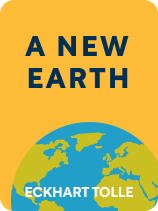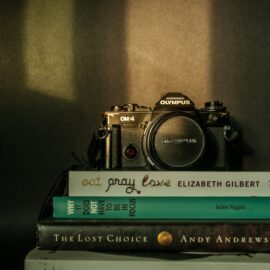

This article is an excerpt from the Shortform book guide to "A New Earth" by Eckhart Tolle. Shortform has the world's best summaries and analyses of books you should be reading.
Like this article? Sign up for a free trial here .
Do you struggle with mindfulness? Why is it so difficult to stop the never-ending stream of consciousness and simply be mindful of what is happening in the present moment?
Being present in the moment is the key to relieving dissatisfaction and anxiety, but our thinking mind prevents us from being present. We have this compulsion to always be consumed in thought—worrying, ruminating, and mind-wandering. According to Eckhart Tolle, mindfulness is difficult because we are caught up in the cycle of wanting. It’s hard to stay mindful in the present moment when you want things to be different than they currently are.
Here’s why mindfulness is such a struggle for many people, according to Tolle.
The Struggle for Mindfulness
When we’re unable to be mentally present because we’re consumed with wanting, our ego can control our thinking and behavior, trapping us in a dysfunctional state of mindlessness. Tolle argues that the only way to escape this state is to evolve our consciousness to a higher level—one where we are present in each moment rather than constantly wanting. He calls this state being or presence, but we’ll refer to it as mindfulness.
(Shortform note: The Tao Te Ching also asserts that the state of wanting is contrary to how we should live, explaining that earthly desires and “success” are distractions that prevent us from living as one with the Tao, or the natural order of the universe. Living as one with the Tao ultimately means breaking free from the constraints our humanity puts on our minds, like labeling things as good and evil, right and wrong, fact and fiction, and being concerned with the past, future, and what we should and shouldn’t do. These constraints are what Tolle would label as manifestations of the ego, and the Taoist solution to break free from these constraints corresponds to Tolle’s idea of presence—mindfulness.)
The Inner Self
According to Eckhart Tolle, mindfulness is achieved by connecting with our inner self, rather than the false self-image created by our ego. When we’re connected with our inner self, we’re always in a state of mindfulness.
Tolle explains that our inner self is pure conscious energy, the same sophisticated energy that created the functional universe we live in. It’s the force that directs planets to rotate around stars and galaxies to rotate around a center mass—an order that allows for life to exist.
This energy lives inside all things and guides their survival—plants that photosynthesize to live; animals that survive by their instincts; and humans, who are conscious of their own consciousness. He argues that this sophisticated energy specifically created humans to have this heightened consciousness so that it can experience itself through the human form—so consciousness itself could experience consciousness. Becoming one with this consciousness, or our inner self, is the purpose of human life, Tolle argues.

———End of Preview———
Like what you just read? Read the rest of the world's best book summary and analysis of Eckhart Tolle's "A New Earth" at Shortform .
Here's what you'll find in our full A New Earth summary :
- Eckhart Tolle's guide on how to evaluate your consciousness
- How to overcome ego-driven thoughts and behaviors
- Why humanity must undergo an evolution of consciousness






